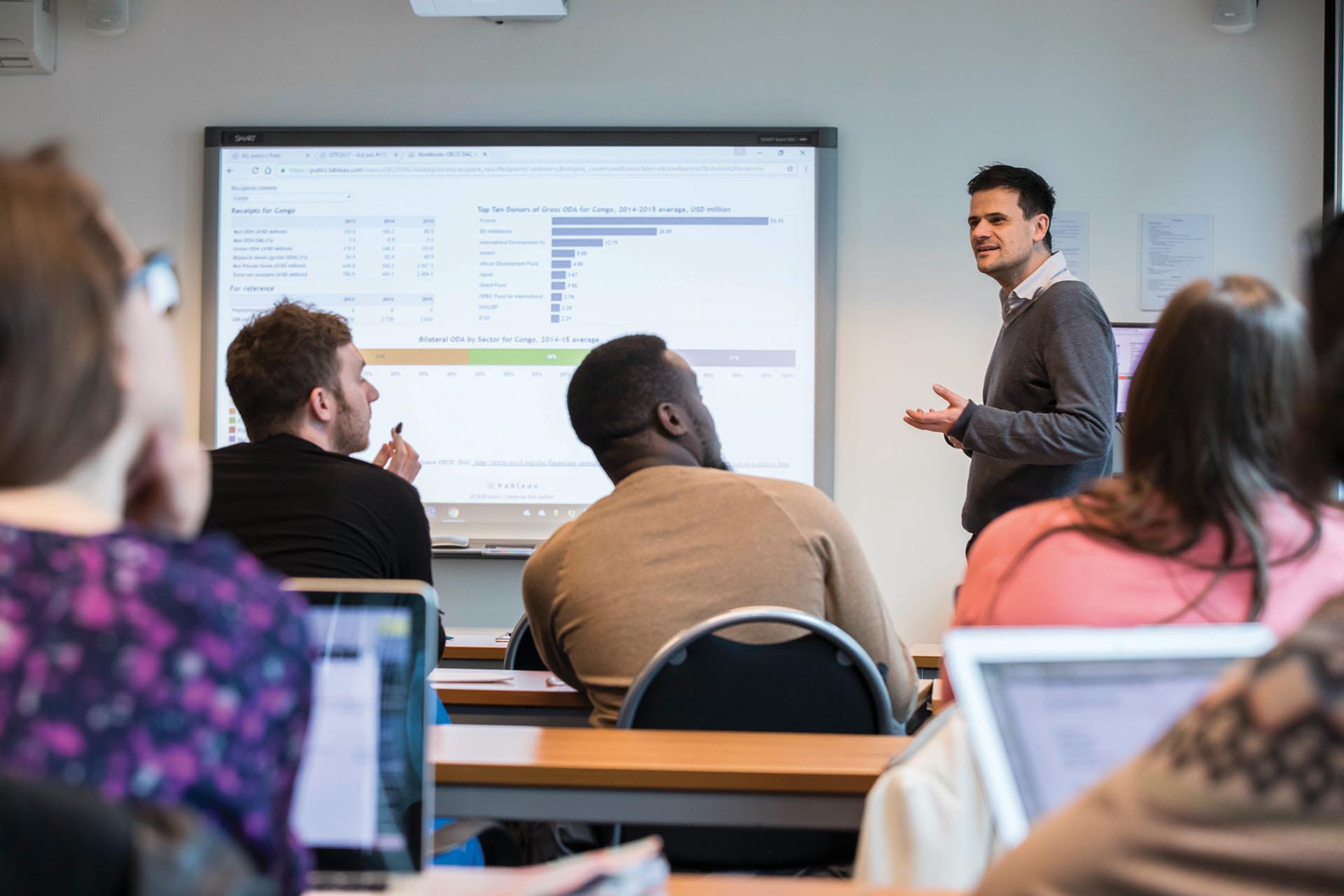
In June 2022, the Accreditation Organisation of the Netherlands and Flanders (NVAO) released a very positive report following its assessment of the Brussels School of International Studies. The committee’s analysis covers different aspects of what the school has to offer, such the curricula, its focus on employability, and its unique position as an international campus in the heart of Europe.
The report praises the school’s teaching as “intellectually ambitious” with “excellent lecturers”, the diversity of which was considered a distinctive strength by the panel. They also note that in their investigations, students and alumni commented multiple times on the “excellent availability” of both teaching and support staff.
Concerning the teaching structure, the report states that its flexible setup, with students having the option to combine optional modules so as to deepen their understanding, is a defining feature in comparison to other schools. In the case of the International Relations programme, the committee reported that alumni were pleased with its “far-reaching and diverse approaches offered to international relations”, with a strong connection to recent events. As for International Law, the panel appreciated the school’s “problems-based approach”, and noted that rather than always using the legal aspects of a problem as a starting point, a “thematic approach” was preferred, “drawing in dimensions from other disciplines”.
Alumni also gave examples of how “the critical point of view they had developed at BSIS was still very helpful in their current occupations”, and the panel declared it was “impressed” with the degree to which the learning environment at BSIS was “supportive for students’ (personal) development”. It also stated it was “very pleased” with each programme’s commitment to decolonising its curriculum, and highly valued the fact that lecturers had “gone beyond the low-hanging fruit” in this regard, notably by bringing into practice “non-Western, postcolonial and intersectional perspectives” in the course materials.
Moreover, the panel reported that many current students were taking advantage of the school’s location to complete high-profile internships, and that the school’s efforts towards offering networking opportunities as well as career guidance had helped in this regard. The report also notes that the “distinctive” diversity of the curricula and academic staff, with the involvement of practitioners being “highly valued by alumni and [current] students alike”, is compounded by the school’s “high number” of relevant visiting and guest lecturers who contribute to the programmes and academic community. The panel deemed this a reflection of BSIS’s ability to make the most of Brussels, as a “hotspot for international policy-making”.




